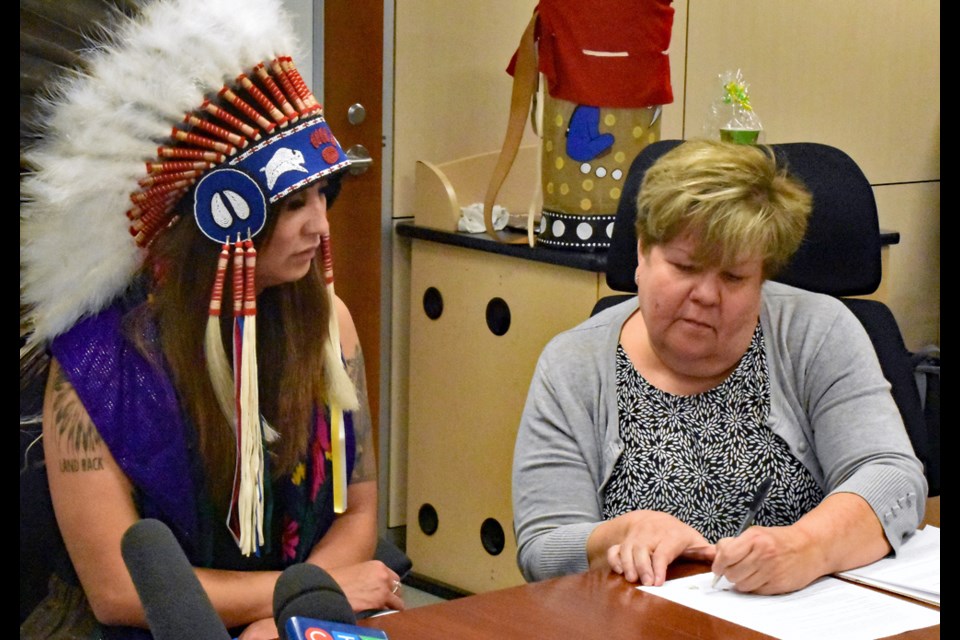SASKATOON — Dr. Alexandra King echoed the words of Federation of Sovereign Indigenous Nations Third Vice-Chief Aly Bear , who said more resources are needed when it comes to the health care needs of Indigenous women.
King, a citizen of the Nipissing First Nation in Ontario, has become an ally of Saskatchewan First Nations and Métis when it comes to improving the health and wellness of Indigenous people in the province.
She is the Cameco chair in Indigenous Health and Wellness at the University of Saskatchewan, and on Friday, June 24, signed a memorandum of understanding with FSIN’s Saskatchewan First Nations Women’s Commission represented by Bear for a research alliance.
The SFNWC of the FSIN and pewaseskwan — the Indigenous Wellness Research Group — signed the MOU at their office at the Health Sciences Building at the University of Saskatchewan.
King said most of her research focuses on Indigenous women and members of the LGBTQ+ and Two-Spirit Peoples as she feels medical research and healing should be led by women and others.
“Working with them, I feel has ripple effects throughout the family, the community and the other things. It was a great honour that I get to start working with the FSIN Women’s [Commission] Secretariat,” said King.
Bear said that being an alumnus of USask, she’s glad to see her alma mater stepping up to help address issues that concern Indigenous women and Two-Spirited people.
“I think, right now, that there’s a lack of support but at the same time, being newly elected to the FSIN and being an alumnus of U of S, kind of goes to show that we can make the connections and partnership,” said Bear.
King and Bear, who heads the FSIN Women’s Commission with Fourth Vice-Chief Heather Bear, agreed transportation is one of the barriers women face in accessing health care and addressing their other medical needs.
“Navigating a western health care system, I think, is one of the biggest barriers for a lot of us. Especially if you are living in rural and remote areas. The trip [to Saskatoon, for example] can be out of some people’s abilities with the cost of gas right now. We don’t have the bus systems that we used to and so being able to come down for medical care is a lot more challenging, as well,” said King.
Bear added many First Nation women live in reservations and other remote communities that are often hundreds of kilometres away from cities that have the resources to address their health care needs.
“Especially, the ones up north. It is a huge barrier for them to have to try to find transportation and so that’s why you hear all these stories like the Highway of Tears. Women who are trying to travel to these spaces, to get that health care, end up missing or murdered because of the lack of transportation and the lack of support from the health care system,” said Bear.
King also said that there’s more to understand and learn from women who are substance abusers, as they too also have the right to access health care and have their medical needs addressed.
“I think that we need a better understanding of what all is driving the drug use and how do we support people who are using drugs. They have a right to health the same as the rest of us and so if that includes something like sexual health or reproductive health … We should be trying to figure out how to work with them so that they can access a system that is low barrier-free without discrimination,” she said.
“Again, I don't think that there are no resources available and a lot of the resources are very much designed from a western perspective, very much designed from an abstinence perspective. What we know is that I often describe addiction as a big high, and perhaps abstinence is this slice over here, but other people are in for some guy using drugs is a way of staying alive and coping.”


